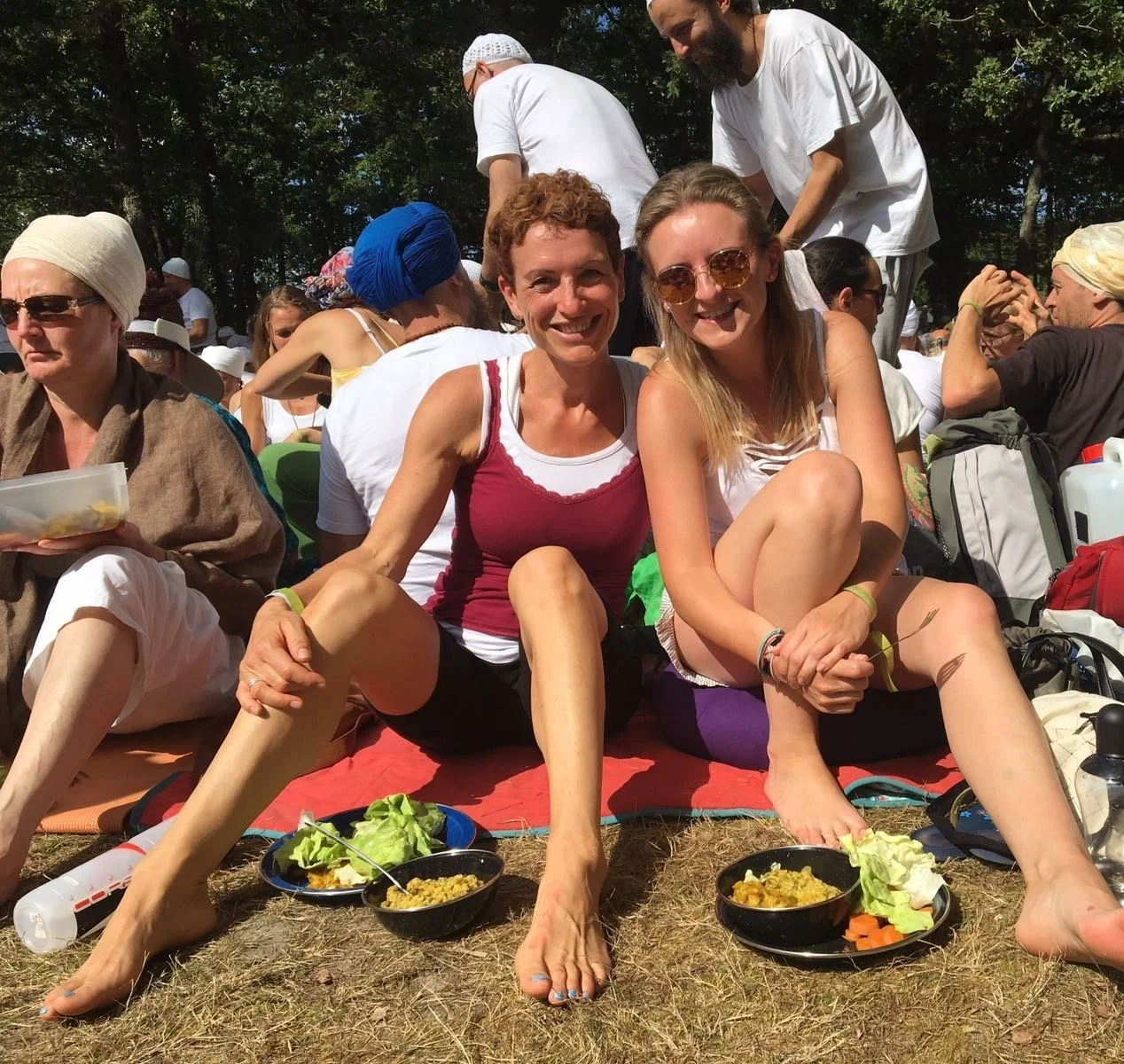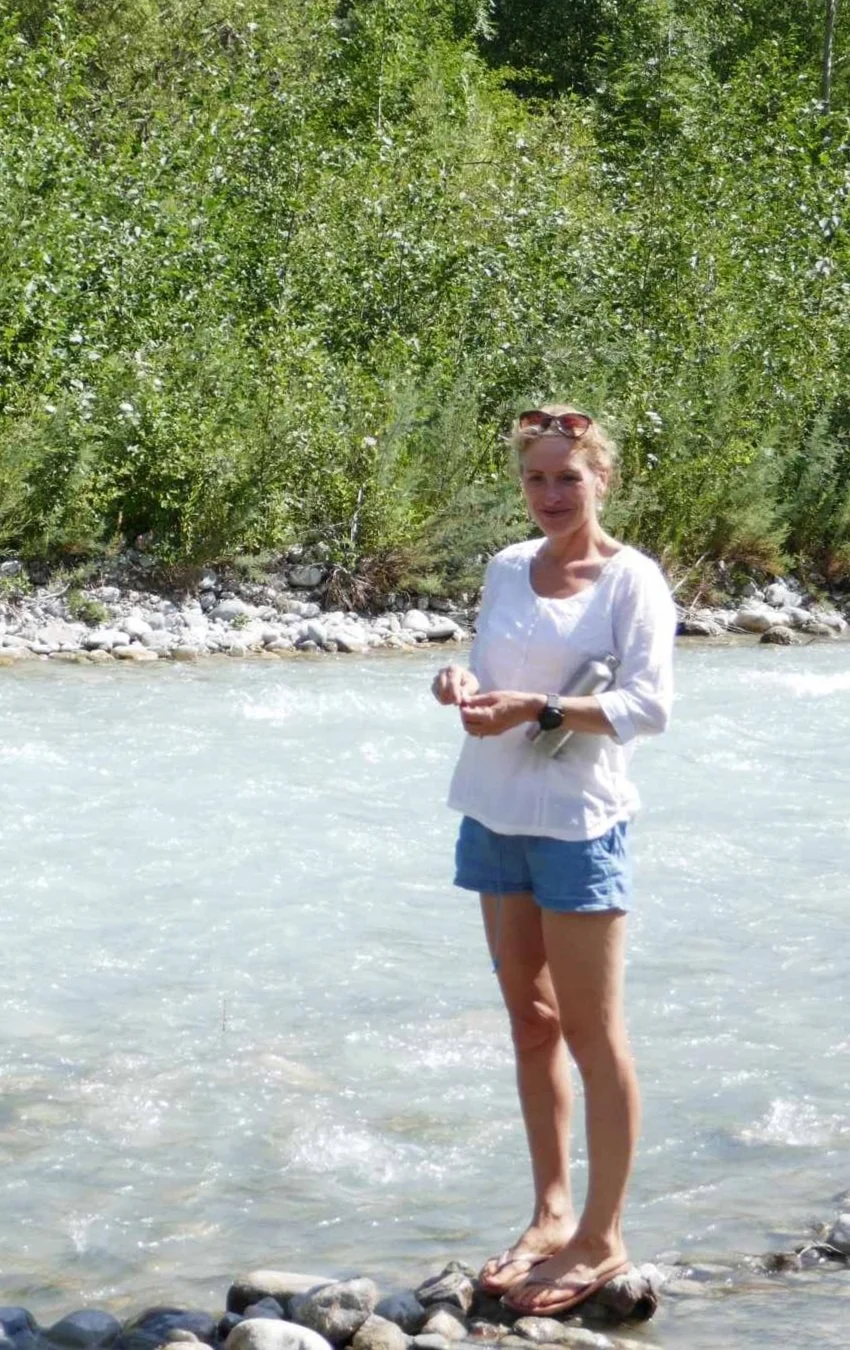Breast Cancer in Pregnancy: The Diagnosis
At around 34 weeks pregnant with my step-daughter Amber.
Cancer and Pregnancy: Some Statistics
Cancer in pregnancy is considered rare, occurring in approximately 1 in every 1,000 pregnancies and accounting for between 0.7%-1.0% of all malignant tumours (1-2). While the medical profession may consider this rare, one woman being diagnosed with cancer for every 1,000 pregnancies actually seems rather high to me.
Especially as I was that woman.
I was 40 years old and 41 weeks pregnant when I was diagnosed with stage 2 invasive breast cancer. What should have been one of the happiest times of my life was devastated by a diagnosis few people are every really prepared to receive, let alone one who is heavily pregnant. I was suddenly overwhelmed by a rollercoaster of emotions, where the joy of being pregnant and excitement for future motherhood was totally overshadowed by fear for my own life and the life of my then unborn child.
My whole world was turned upside down. I was sent home to give birth (given it was so imminent) and told to get back in touch once I had; the pressure to take immediate action was high. My hormones were raging, the infamous ‘baby brain’ was taking hold and I had just received a cancer diagnosis. I really was not in a position to be making life and death decisions.
Breast Cancer and Pregnancy: Breastfeeding, Cancer Treatment and Donor Breast Milk
So I initially went along with the recommendations of the professionals, as at that time I didn’t believe I had any other options. They advocated a full mastectomy, 6 rounds of chemotherapy, radiotherapy and finally, the icing on the cake, 10 years of the oestrogen blocking medication - Tamoxifen. I was to unquestionably put my life in the hands of the medical profession.
Breastfeeding was a sticking point for me as I was determined to breast feed for as long as possible. I had read so much about the benefits for both mum and baby and I was adamant that I had to give my son the best start that I could, cancer diagnosis or not! In fact, the thought that I wouldn’t be able to breastfeed for as long as needed was one of the things that upset me most in those early days. Strange what we focus on but I am still glad that I did.
Sometimes they recommend chemotherapy first then surgery but because of my desire to breastfeed, the specialists agreed that I could have a mastectomy first. So at 4 weeks post partum I had a single sided mastectomy, and continued to breastfeed. During the daytime I was fine but overnight it was total hell. The post surgery pain ramped up a thousand fold overnight, so much so that it was excruciating to have Ethan lying on top me but I was so determined to keep at it.
I wanted to delay the start of chemotherapy, until the new year at least, but this was not to be once some rather dire statistics were presented to us by the oncologist. Within the week I was at The Christies Hospital in Manchester having my first round of chemotherapy. I was 8 weeks post partum and continuing to breastfeed was no longer an option. I was distraught.
But then I discovered the wonderful women who donate breast milk to breast milk banks around the country and that potentially we could access this milk for Ethan via a grant scheme obtainable through my GP. It took a few weeks to arrange but with the support of my GP, we received donor breast milk until Ethan was 6 months old, fully funded via this grant. It was such a weight off my mind and I am eternally grateful to these anonymous women for being so generous and kind. It was one less thing to worry about.
If you would like some support negotiating your way through this challenging time, then take a look at our 90 day programme to see how we can help you. Alternatively, if you have any questions then send us a message and we will get back to you as soon as possible.
Cancer and Pregnancy: The big wake up call
It is almost 7 years now since my diagnosis, and if I was able to tell my 40 year old self that while I was without doubt facing the greatest challenge of my life, I would come out the other side a healthier, happier, and emotionally, a much stronger person then I simply could not have believed or foreseen it.
But cancer, it turns out was to become my final wake up call. I’d had some significant warnings over the years that I wasn’t looking after my body and mind as needed, but I heeded none. I didn’t consciously choose to ignore these signs, I was merely behaving in such an unconscious way that I did not see them for the warnings that they were (I’ll talk more about these signs in a later post). But cancer shook me, it forced me to think deeply about everything, my life so far, my current beliefs and ways of living, and also how I wanted to live and to be in the future.
Fundamentally, I wanted to live!
Not just for my son or for my husband but for me. And I didn’t just want to survive, which I equated to simply clinging on, being alive but not being particular well. That wasn’t what I wanted for myself.
I wanted to thrive! I wanted to be fully back to health. No compromises.
I just had to work out how this was possible given the dire state of my then health. I needed to work out why my health had deteriorated so, and what I could do to turn that around. No mean feat given that the vast majority of us are so disconnected from how we need to live to be healthy. It really is little wonder then, that data suggests that one in three adults in developed countries lives with multiple chronic health condition (4). Moreover, many of the most harmful behaviours, are culturally the norm, perfectly acceptable behaviours and habits, and to veer outside this conventions to a more healthful way of living is often considered strange, offbeat and unconventional. As a culture we are actively choosing ill-health, day in, day out through the choices we make, and this to many is the norm. My life needed to be different, I had to start making better choices so that I could recover fully, from the birth of my child, from the operation, from the 4 rounds of chemo, and ultimately from the underlying diseased state that my body was in.
I needed to transform my ailing body into a body in which disease and specifically cancer could not thrive.
I clearly had work to do!
I felt empowered.
Breast Cancer in Pregnancy: My Story (2016-2019)
If you too want to become empowered to take back control of your health, to turn your ailing body into one in which cancer can not thrive then we can support you. Take a look at our 90 day programme for more information as to how we can help you, or alternatively, if you have any questions then send us a message and we will get back to you as soon as possible.
“We fall, we break, we fail... But then we rise, we heal, we overcome.”
— Unknown
Sarah Eglin: Registered Nutritional Therapy Practitioner (mBANT) and breast cancer ‘thriver’
If you would like to read more about my personal experience with breast cancer and my journey back to great health then please click on the following links for more in depth information.
You can also join my Facebook group - Become a Cancer ‘Thriver’ and follow us on Facebook or Instagram.
References & Notes
(1) Hepner A et al. (2019). ‘Cancer During Pregnancy: The Oncologist Overview.’ World J Oncol. Vol:10(1), p28-34. doi: 10.14740/wjon1177. Epub 2019 Feb 26. PMID: 30834049; PMCID: PMC6396773.
(2) Nationwide registeries do not usually combine both obstetrical and oncological data, resulting in a likely underestimation of the incidence of cancer-related miscarriages or abortions. Also, population-based studies differ in inclusion criteria, often incorporating postnatal cancer diagnoses (3). An true view of incident rate is therefore difficult to obtain.
(3) Maggen C et al. (2020). ‘International Network on Cancer, Infertility and Pregnancy (INCIP). Pregnancy and Cancer: the INCIP Project.’ Curr Oncol Rep. 2020 Vol 22(2): 17. doi: 10.1007/s11912-020-0862-7. PMID: 32025953; PMCID: PMC7002463.
(4) Hajat C & Stein E. (2018). ‘The global burden of multiple chronic conditions: A narrative review.’ Prev Med Rep. Vol 12, p284-293. doi: 10.1016/j.pmedr.2018.10.008. PMID: 30406006; PMCID: PMC6214883.













